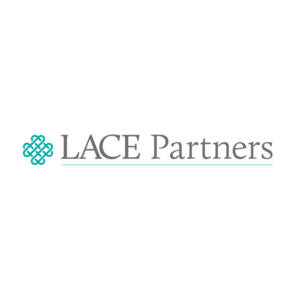The HR World speaks to industry leaders about their careers and life – what advice would they pass on and what wisdom brought them to where they are now.
Andrew Bott, Director Talent Acquisition at Medidata discusses the challenges and successes of finding talent in the Life Sciences sector.

15 September 2023

Story by
Andrew Bott, Director, Talent Acquisition, Medidata
New ideas and new talent are key to the success of any organisation, perhaps even more so during challenging periods. Recognising the power of employees to make positive change within a business is key when drawing people to your organisation.
The last few years have demonstrated how quickly the labour market can change and how new challenges can emerge. My world of Talent Acquisition is no different. The Covid-19 pandemic has left a permanent mark on working practices, norms, and expectations, and as HR professionals, we have had to adapt to these norms to retain and attract talent. We have had to think more innovatively, listen to our audience and constantly evolve in order to identify new and exciting possibilities and ways of attracting talent.
A tough macroeconomic backdrop
Like most, my industry, Life Sciences, has been impacted by macro headwinds in recent years. The pandemic hugely disrupted working norms, and was followed by the so-called Great Resignation in 2021 which led to significant employee turnover in many industries. Whilst I will not deny we felt some of these effects, given the inbound investment into Life Sciences through and beyond the pandemic, we were shielded from the worst as we continued on an upward trajectory of growth.
Massive inbound investment into the industry fuelled significant business growth for parts of the sector and therefore created a highly competitive job market. Large tech multi-nationals saw Life Sciences & Healthcare as a growth vehicle and alongside investment backed start-ups, this created a perfect storm of competition for talent and some eye-watering salaries.
However, the past 12-18 months have been more challenging for Life Sciences companies. Growth has slowed and many of those same start-ups now have an unsustainable cost base they have to trim, so are shedding employees. We have found candidates are looking to return to more secure employers who have a track record of solid growth, enduring customer relationships and a deep-rooted culture.
However, it’s never plain sailing! The rising cost of living has brought us all new challenges. With growth slowing, employees have become more risk averse and are therefore moving roles less frequently. Those that do engage, are often seeking large deltas in pay to make the move worthwhile. Alongside internal pressure from employees to raise pay, increases in core business costs have created the latest perfect storm.
A specialist industry requires specialist staff
We have not been alone in the Life Sciences industry in having to confront changes and challenges. However, there are some issues that are unique to our sector. A large number of roles within the sector require industry-specific and/or specialist knowledge and during difficult hiring periods, where levels of attrition are low, this can make specialist talent acquisition even more difficult with limited pools to hire from. This scarcity of – and competition for – talent has always been there and will not be going away.
We have to think outside the box and ensure that we are effectively demonstrating the opportunities we can offer to new talent and provide an attractive and unique proposition to potential new hires. At Medidata, we built an in-house global talent sourcing function, because we felt that we as employees are best placed to articulate our own message and value proposition to prospective candidates – after all, we live it ourselves as employees. Dedicating time and resources to this process has been key in ensuring that we highlight Medidata’s unique offering and differentiate ourselves within the sector in a manner that is authentic and believable.
Ever-changing working practices
Altered expectations around homeworking and flexible working arrangements since Covid-19 have impacted businesses across all sectors and we are having to confront the challenges this poses when hiring new people. Returning to a five day-week in the office seems an impossibility for many and no longer appears to be a sustainable option for some businesses. However, in the Life Sciences industry, many roles (e.g. a laboratory scientist) require people to physically come to their place of employment. Balancing different requirements amongst a workforce is challenging and requires careful consideration for HR professionals, especially when we are advertising for new roles. No matter what an organisation’s policy on hybrid working is, there is a need for organisations to stay flexible and adaptable to employee needs and find innovative ways to ensure that they retain a strong culture wherever someone is working.
Creating an attractive culture that makes people want to join and stay
The growth of homeworking has put the culture of organisations at risk as teams spend less time together. Culture can be key in talent retention but also in talent attraction. Amid a competitive period for talent we, at Medidata, have seen the growing importance of being able to differentiate your offering from competitors. Demonstrating a good working culture is key to this and to attracting new talent. It is vital to show both current employees and potential new employees that working for your organisation is fun and rewarding. The question then arises: how can you best demonstrate a strong culture to new talent? And how can you convince them that your company is the one they should choose?
Since the pandemic, candidates have been more discerning about what they want from a job – it’s not just about finding the right role, but also a company that aligns with your values.

As a result, at Medidata we have doubled down our initiatives on improving work/life balance and employee wellbeing, as well as continuing to invest in CSR initiatives, such as partnering with local schools, to keep employees engaged and instil a sense of pride in the organisation they work for. One thing that I often tell prospective candidates is that in recent years, we have seen a significant number of people who have left the organisation looking to come back to Medidata. This speaks volumes about the culture we have developed and the recognition that there are significant opportunities to develop your career here.
The power of existing employees in hiring
It is often said that your people are your greatest asset, so show them off! Nobody knows what working life at your company is like better than those who already work there. Cultivating a positive and collaborative culture makes people want to talk about where they work and why they enjoy it – hearing authentic stories and experiences from current employees can be incredibly powerful when it comes to Talent Acquisition. In tough market conditions, Talent Acquisition teams have to work harder to attract the best people. Whilst nothing will change those market dynamics, communicating our unique culture and amazing staff via Talent Brand initiatives is a tactic we have found to work and will continue using. Showing up online in an authentic and consistent manner in a world where Talent Acquisition is increasingly defined by digital marketing is an essential component of success.
The team effort
What’s more, I believe that hiring is a team effort, not the exclusive role of Talent Acquisition, which is why at Medidata we have developed ambassadors within our hiring groups to communicate our message from the employee base. Additionally, an enhanced employee referral scheme, which encourages our staff to mine their own networks and put candidates forward that they think would be of value to us as an organisation has proved invaluable as a strong source of candidates and a key component of fuelling our culture.
Share
Latest to join the HR Partner Directory
Want to become a partner?
Please get in touch and let’s talk about how we can help you make an impact on the future of work.







